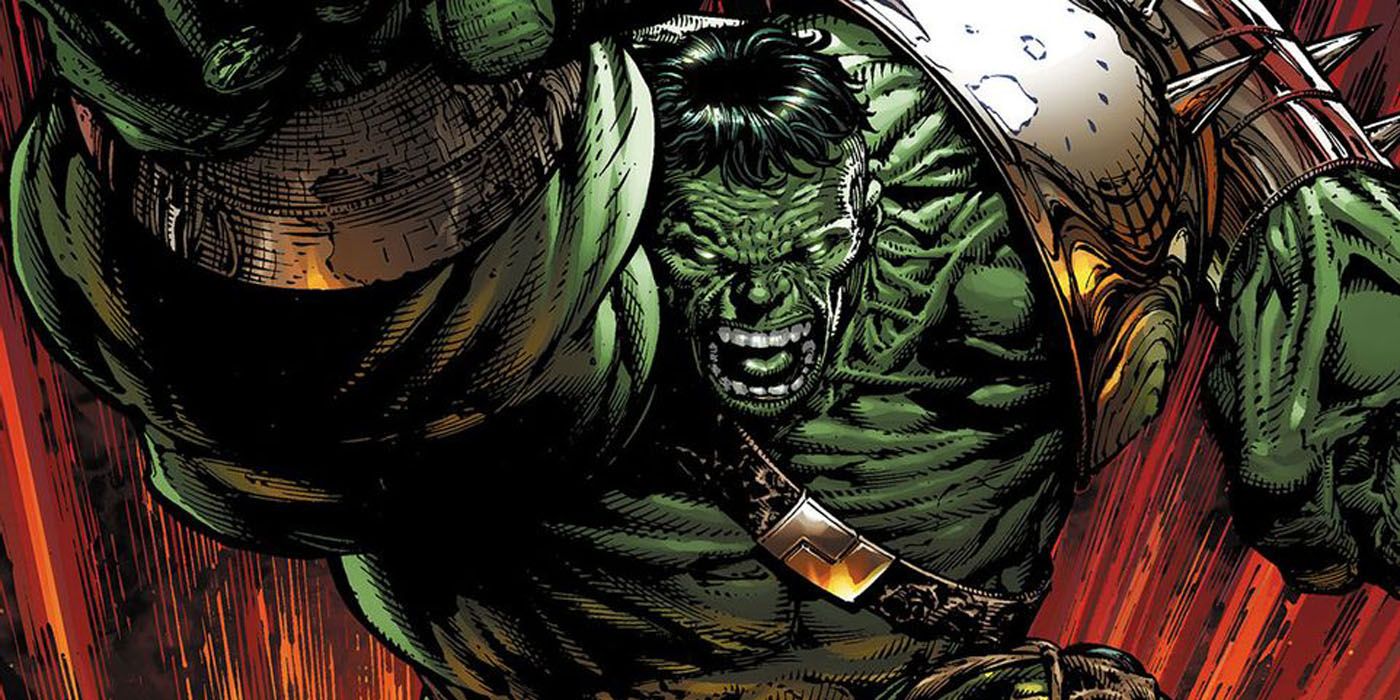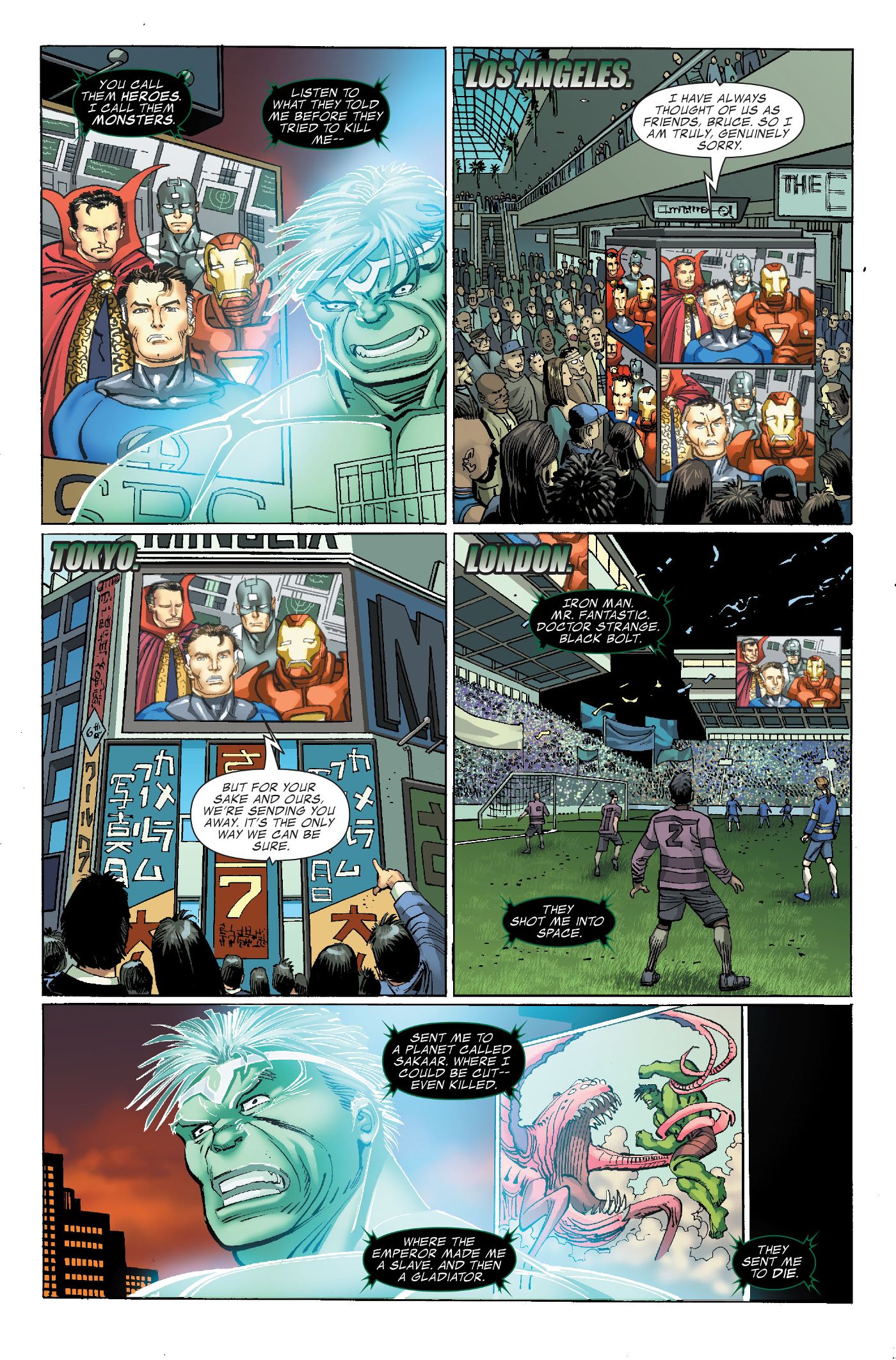There have been many Marvel Comics events over the past two decades where many characters are brought together, usually to face one big threat or crisis that one hero could not face alone, but none of them was just as good as World War Hulk. Prioritizing emotion and character over big fights, the 2007 crossover event examines Hulk's place in the Marvel universe and his relationship to its other heroes.
During the Planet Hulk storyline, some of the most powerful and influential heroes on Earth decide to find a permanent solution for the "Hulk problem." The group known as the Illuminati - Mr. Fantastic, Doctor Strange, Black Bolt, and Iron Man - lure Hulk on a mission to take out a rogue space satellite, only to trap him in his spaceship and hurl him into a portal. The plan is to send Hulk to a peaceful, inhabited planet where he can not hurt anyone, but the portal drops him instead on the savage planet Sakaar, where Hulk is forced to fight for his life as a gladiator. After taking over this new world, Hulk apparently finds peace and even marries the warrior Caiera. However, the spaceship he arrived in suddenly explodes, killing one million people, including Caiera and (apparently) her and Hulk's unborn child. Thinking that the Illuminati are responsible for booby-trapping the ship, an enraged Hulk gathers what is left of his companions and heads towards Earth, determined to get revenge on the former friends who took everything away from him.
World War Hulk - by Greg Pak, John Romita Jr., Klaus Janson, and Christina Strain - is, on the surface, a classic Marvel tale of action, cliffhangers, and heroes uniting against a common threat. While Planet Hulk put the titular character in an unfamiliar position of weakness, in World War Hulk Banner is at his most powerful. Not only has he become stronger during the time spent on Sakaar, but his rage reaches unprecedented heights while retaining his intellect, and everyone knows that the angrier Hulk gets, the stronger he is. This story has all the ingredients for a fun and entertaining tale of "Hulk smash puny heroes," and World War Hulk certainly delivers on that, but at the same time it is much more. Throughout the story, it is obvious that Hulk has no intention to harm the common people, let alone to destroy Earth. This already makes the event completely different from any other Marvel one: the "bad guy" is not actually a threat to anyone, except for the few people he wants to punish. Hulk doesn't want to smash Earth, he wants to smash the hypocrisy of the so-called heroes who did not hesitate to betray one of their best friends. He wants to expose them for who they are: liars.
"You call them heroes, I call them monsters," Hulk says in a broadcast to the people of Earth, and this encapsulates a lot of what makes World War Hulk a great story. Sure, it's a tale of betrayal and revenge, but also one that explores the nuances of morality and how the powerful will always portray themselves as being right, while outcasts such as Hulk will be called "monsters" and exiled from society. What is the difference between Hulk and, for example, Iron Man, who is obsessed with building weapons and whose inventions have endangered people many times in the past? The answer is that Bruce Banner is an outcast, and Tony Stark is a millionaire playboy. Hulk's final words in the last issue are the perfect conclusion to the story: "They can call you whatever they want. Savior. Destroyer. All that matters is what you choose."
It's hard to feel emotionally invested in a superhero event because these tend to be large-scale battles of good vs. evil, removed from the struggles of daily life. It is much easier instead to care for World War Hulk's tale of friendship and betrayal. While still remaining an entertaining and action-packed story, World War Hulk reached a quality of storytelling that is still unmatched almost two decades later.


